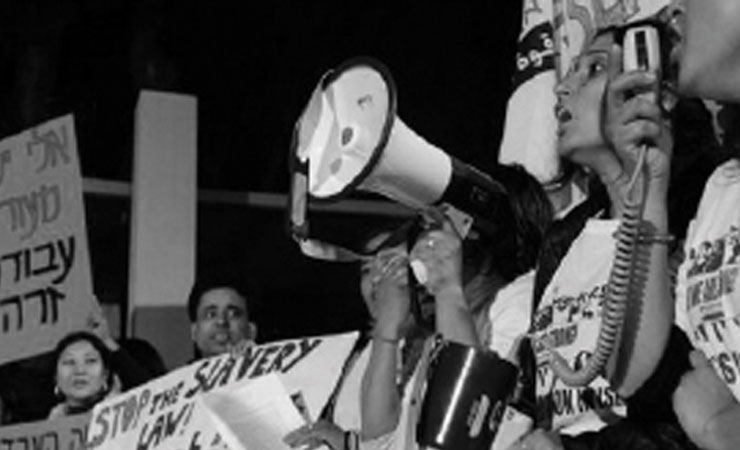It is estimated that the number of Eritrean women living in Israel is around 7,000, with most working in what is known as the “secondary sector” of the labor market: contract and hourly work, especially cleaning offices, buildings and private homes. In addition to limited knowledge regarding their rights in the workplace, the most common challenges faced by working Eritrean women include lack of English or Hebrew language skills to communicate with employers, non-payment of social rights by employers, and bureaucratic barriers to receiving maternity benefits from the National Insurance Institute. Furthermore, the fact that many Eritrean women in Israel are forced to work due to their economic situation may break traditional family structures and gender roles of men participating in the public realm while women remain at home. This shift can cause additional stress and anxiety for Eritrean women, who may additionally face discrimination and racism in the workplace. Eritrean women are among the most marginalized, peripheral and vulnerable communities of workers whose socio-economic rights (especially with regard to maternity rights) are often ignored or violated.
In 2014, Kav LaOved – Worker’s Hotline and the Eritrean Women’s Community Center (EWCC), supported by the Rosa Luxemburg Foundation, aim to provide working Eritrean women with comprehensive support that will give them the knowledge and tools to defend their rights as workers and women, resulting in a more stable emotional and financial state of being for themselves and their families. Activities include raising awareness about workers’ rights and specific relevant rights regarding pregnancy and childbirth, outreach to hospitals regarding pregnancy benefits for Eritrean women, conducting reception hours in the Eritrean Women’s Community Center and Kav LaOved to provide individual face-to-face consultation, conducting a series of courses to promote health and pregnancy related issues and workers’ rights among the Eritrean women community, and providing legal representation as necessary to Eritrean women.


